Elementals – Dave Brubeck In Memoriam
Elementals – Dave Brubeck In Memoriam
David Warren Brubeck, composer and pianist, born 6 December 1920; died 5 December 2012.
All his life, Brubeck continued to regard himself as "a composer who plays the piano". Though much was made of his piano-playing by his early fans, Brubeck's solos relied heavily on riff-like block chords and rather relentless dynamics. They became more varied and unpredictable in the later stages of his career and remained so into his 80s.
Dave Brubeck - Elementals
But Brubeck's real achievement was to blend European compositional ideas, very demanding rhythmic structures, jazz song-forms and improvisation in expressive and accessible ways.
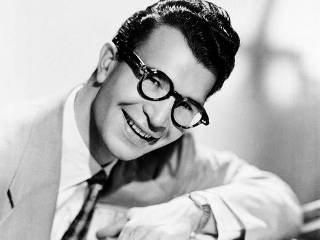
Dave Brubeck
In the late 1950s the most popular and influential Brubeck quartet was born. The album Time Out (1959) turned out to be the group's biggest landmark, unleashing the first million-selling post-bebop jazz records with singles of Blue Rondo and the Desmond composition – triggered by a 5/4 Morello drum exercise – Take Five. (See my note Dave Brubeck Quartet – Take Five ).
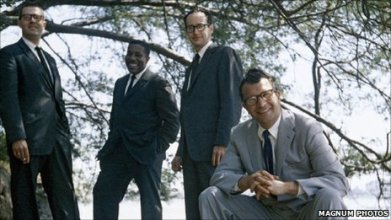
Dave Brubeck Qurtet
Brubeck experimented with time signatures and polytonality and explored musical theater and the oratorio, baroque compositional devices and foreign modes.
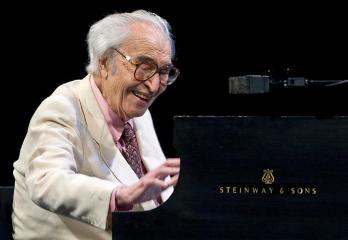
Dave Brubeck
Time Changes is a 1963 album by The Dave Brubeck Quartet, based upon the use of time signatures that were, partially because of Brubeck's previous work, now a mainstay in popular jazz music.
The whole second side of the album contains the composition "Elementals". It was Mr. Brubeck's first orchestral composition. Brubeck was asked to write this piece by Rayburn Wright, who was conducting a seminar at Eastman School of Music on arranging, and the work was performed in a finale concert at the end.
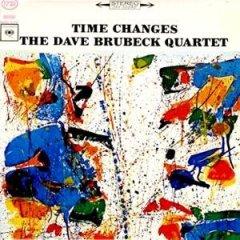
Time Changes, cover
“The opening moments are ambitiously atonal, with an ominous pizzicato from strings, maybe to scare away the faint of heart. But the piece soon settles into a modal feel in 3/4 time, a sort of promenade before the main theme is introduced and the solos get underway. The mode Brubeck chooses suggests medieval music, even a hint of an ancient carol like “God Rest Ye Merry, Gentlemen.” There is also a Frenchness to the piece right away, something of Couperin, or Bach in a French mood, dressed up in Stravinskyish orchestral colors. Solos come along, and there’s a very nice one by Desmond over oboe and strings. Brubeck’s two solos in this part remind us that this is one of the “time” albums; he uses something that has become familiar in his arsenal, playing in a rocking 4/4 over the underlying 3.
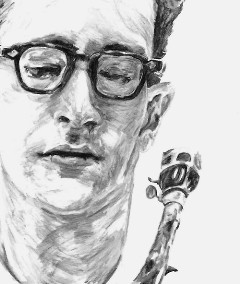
Paul Desmond There’s a big Kentonish flourish, and the piece moves to an orchestral reworking of the original theme, with 6/8 sections alternating with swinging 4. This second part of the piece has solos from Desmond and Brubeck, but the centerpiece is a Joe Morello drum solo in 6/8 over cowbell and orchestral percussion. Logically, this might have moved right to a big finish, but room has to be made for a Eugene Wright bass solo, which is almost drowned out by the orchestra. Maybe Wright’s spot should have been in the more delicate first part. Joe Morello 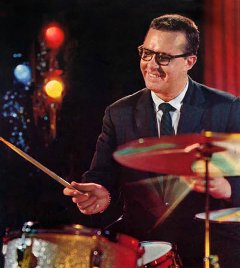
An obvious edit takes us into the last section, with some dense polytonal stuff for orchestra, the return of a couple of big chords from the start of the piece, and a final pianistic swoop from Brubeck and orchestra together”. (Steve Elman, artsfuse.org)
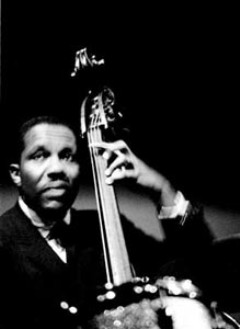
Eugene Wright
This is one of the more successful "jazz meets the symphony" works, with the orchestra being logically integrated into Brubeck's music.
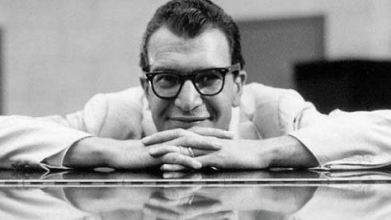
Dave Brubeck
Dave Brubeck once explained succinctly what jazz meant to him. “One of the reasons I believe in jazz,” - he said - “is that the oneness of man can come through the rhythm of your heart. It’s the same anyplace in the world, that heartbeat. It’s the first thing you hear when you’re born — or before you’re born — and it’s the last thing you hear.”
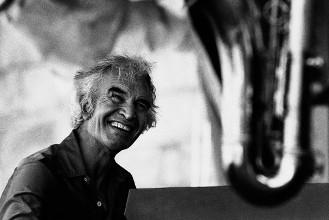
Dave Brubeck








